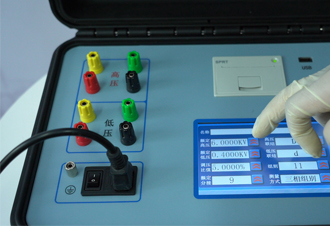 English
English



-
 Afrikaans
Afrikaans -
 Albanian
Albanian -
 Amharic
Amharic -
 Arabic
Arabic -
 Armenian
Armenian -
 Azerbaijani
Azerbaijani -
 Basque
Basque -
 Belarusian
Belarusian -
 Bengali
Bengali -
 Bosnian
Bosnian -
 Bulgarian
Bulgarian -
 Catalan
Catalan -
 Cebuano
Cebuano -
 China
China -
 China (Taiwan)
China (Taiwan) -
 Corsican
Corsican -
 Croatian
Croatian -
 Czech
Czech -
 Danish
Danish -
 Dutch
Dutch -
 English
English -
 Esperanto
Esperanto -
 Estonian
Estonian -
 Finnish
Finnish -
 French
French -
 Frisian
Frisian -
 Galician
Galician -
 Georgian
Georgian -
 German
German -
 Greek
Greek -
 Gujarati
Gujarati -
 Haitian Creole
Haitian Creole -
 hausa
hausa -
 hawaiian
hawaiian -
 Hebrew
Hebrew -
 Hindi
Hindi -
 Miao
Miao -
 Hungarian
Hungarian -
 Icelandic
Icelandic -
 igbo
igbo -
 Indonesian
Indonesian -
 irish
irish -
 Italian
Italian -
 Japanese
Japanese -
 Javanese
Javanese -
 Kannada
Kannada -
 kazakh
kazakh -
 Khmer
Khmer -
 Rwandese
Rwandese -
 Korean
Korean -
 Kurdish
Kurdish -
 Kyrgyz
Kyrgyz -
 Lao
Lao -
 Latin
Latin -
 Latvian
Latvian -
 Lithuanian
Lithuanian -
 Luxembourgish
Luxembourgish -
 Macedonian
Macedonian -
 Malgashi
Malgashi -
 Malay
Malay -
 Malayalam
Malayalam -
 Maltese
Maltese -
 Maori
Maori -
 Marathi
Marathi -
 Mongolian
Mongolian -
 Myanmar
Myanmar -
 Nepali
Nepali -
 Norwegian
Norwegian -
 Norwegian
Norwegian -
 Occitan
Occitan -
 Pashto
Pashto -
 Persian
Persian -
 Polish
Polish -
 Portuguese
Portuguese -
 Punjabi
Punjabi -
 Romanian
Romanian -
 Russian
Russian -
 Samoan
Samoan -
 Scottish Gaelic
Scottish Gaelic -
 Serbian
Serbian -
 Sesotho
Sesotho -
 Shona
Shona -
 Sindhi
Sindhi -
 Sinhala
Sinhala -
 Slovak
Slovak -
 Slovenian
Slovenian -
 Somali
Somali -
 Spanish
Spanish -
 Sundanese
Sundanese -
 Swahili
Swahili -
 Swedish
Swedish -
 Tagalog
Tagalog -
 Tajik
Tajik -
 Tamil
Tamil -
 Tatar
Tatar -
 Telugu
Telugu -
 Thai
Thai -
 Turkish
Turkish -
 Turkmen
Turkmen -
 Ukrainian
Ukrainian -
 Urdu
Urdu -
 Uighur
Uighur -
 Uzbek
Uzbek -
 Vietnamese
Vietnamese -
 Welsh
Welsh -
 Bantu
Bantu -
 Yiddish
Yiddish -
 Yoruba
Yoruba -
 Zulu
Zulu
viscometer oil
Understanding Viscosity Measurement with a Viscometer The Case of Oil
Viscosity is a fundamental property of fluids that describes their resistance to flow. It is a critical parameter in many industries, particularly those involving petroleum, lubricants, and various chemical processes. Viscosity measurement is essential for ensuring the quality and performance of oils and other fluids in countless applications. Among the various tools used to measure viscosity, the viscometer stands out as a vital instrument.
A viscometer is designed to measure the viscosity of fluids by evaluating the force required to move an object through the fluid or to measure the fluid’s flow under gravitational force. Different types of viscometers are available, including capillary viscometers, rotational viscometers, and falling ball viscometers, each tailored for specific applications and fluid behaviors.
Types of Viscometers
1. Capillary Viscometers These devices consist of a narrow tube through which the fluid flows. By measuring the time it takes for a specific volume of fluid to pass through the capillary tube under gravitational influence, the viscosity can be calculated using the principles of fluid dynamics. Capillary viscometers are ideal for low-viscosity fluids and are often used in laboratories for accurate measurements.
2. Rotational Viscometers These work by rotating a spindle in the fluid and measuring the torque required to maintain a constant rotation speed. This type of viscometer is versatile and can measure a wide range of viscosities, making it suitable for oil products, paints, and other industrial fluids. Rotational viscometers are beneficial for quality control in manufacturing processes, where consistent viscosity is crucial.
3. Falling Ball Viscometers In this design, a ball is dropped into a cylinder filled with the fluid. The time it takes for the ball to fall a specified distance is measured, and viscosity is calculated based on the ball's diameter, density, and the fluid's properties. This method is particularly useful for measuring high-viscosity fluids such as certain oils and syrups.
The Importance of Measuring Oil Viscosity
viscometer oil

In industries that rely on oils, such as automotive, aerospace, and manufacturing, maintaining the correct viscosity is vital for performance and efficiency. Oil viscosity affects everything from lubrication to fuel efficiency. For example, in engines, the viscosity of engine oil must be suitable for the operating conditions to ensure proper lubrication, reduce wear, and prevent overheating.
Oil viscosity also plays a critical role in the formulation of lubricants and coatings. The desired viscosity directly impacts how products spread, adhere, and perform under pressure. Consequently, precise viscosity measurement enables manufacturers to produce oils and lubricants that meet specific technical requirements, ensuring optimal performance in their applications.
Factors Affecting Oil Viscosity
Several factors can affect the viscosity of oil, including temperature, pressure, and the presence of additives. As temperature increases, the viscosity of most oils decreases, leading to a thinner, more fluid-like state. Conversely, cooling the oil increases its viscosity, making it thicker. Understanding these relationships is essential for proper oil selection and usage in various conditions.
Additionally, various additives are often mixed with base oils to improve their performance. These additives can influence viscosity, reducing the effects of temperature fluctuations and enhancing overall fluid stability.
Conclusion
The measurement of oil viscosity is crucial in many sectors, and viscometers provide the necessary tools for achieving accurate assessments. With an understanding of different types of viscometers and the factors affecting oil viscosity, industries can ensure that their products meet performance standards and regulatory requirements. As technology advances and industries evolve, the significance of viscosity measurement will continue to grow, underscoring the importance of reliable instruments like viscometers in maintaining quality and efficiency in fluid dynamics.
-
Testing Equipment Industry Sees Major Advancements in 2025: Smart & Precision Technologies Lead the WayNewsJun.06,2025
-
Applications of Direct Current Generators in Renewable Energy SystemsNewsJun.05,2025
-
Hipot Tester Calibration and Accuracy GuidelinesNewsJun.05,2025
-
Digital Circuit Breaker Analyzer Features and BenefitsNewsJun.05,2025
-
Benefits of Real-Time Power Quality Monitoring Devices for Industrial EfficiencyNewsJun.05,2025
-
Earth Fault Loop Testing in High-Rise Building Electrical SystemsNewsJun.05,2025



